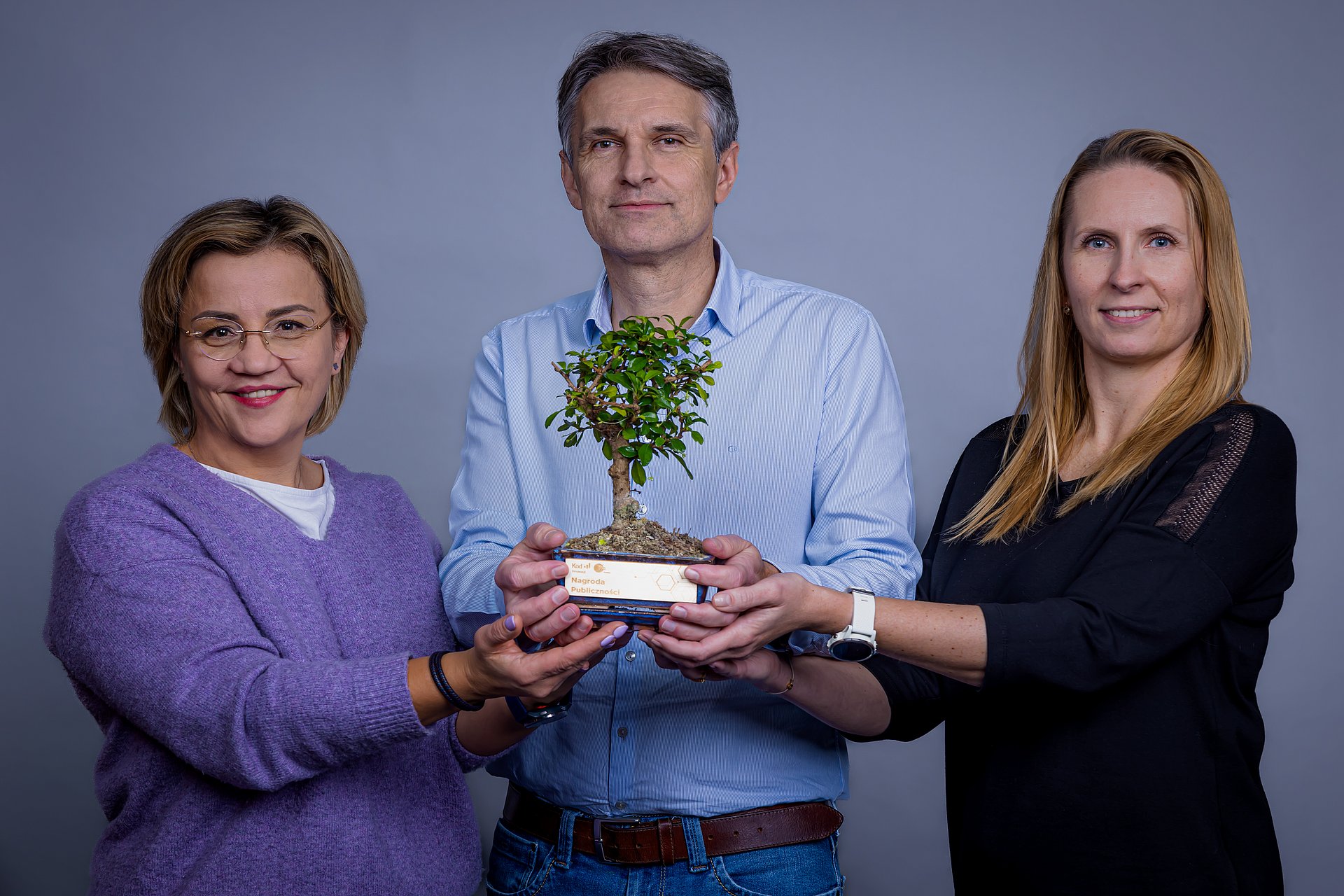This year's edition of the Innovation Code was held in hybrid mode. The event was followed by more than 1,000 people on-site at the Forum Hotel in Warsaw and online. This year's laurels went to projects that contribute to the UN's Sustainable Development Goals.
Fresh Logistics Polska was this year's winner of the Audience Award for its implementation of the Paperless Model. It is a project that reduces the circulation of paper documents. In this way it contributes not only to saving time and money, but most importantly it protects the environment.
The pilot implementation of the Paperless GS1 Model reduced the handling of inbound deliveries to the Biedronka chain by 44% and reduced its costs on the retailer's side by 38%. We believe that similar and greater benefits can be achieved by all companies that adopt our Paperless Model - comments Elżbieta Hałas, PhD, Member of the Management Board of GS1 Poland.
Fresh Logistics Polska is a logistics operator, which apart from its core activity, i.e. transport and warehousing of fresh products, focuses on optimizing the entire supply chain through standardisation. Sharing knowledge and know-how is inscribed in the DNA of the company, for whom continuous improvement of processes has the highest priority.
Implementation of standards like the Paperless Model is a slow but unavoidable process, as only their widespread use at each stage of the process will bring expected results. The effects will be visible not only to the participants in the supply chain in question but in the long run, also in macroeconomic terms, they will improve the competitiveness of the entire economy - explains Jarosław Gulowaty, Contract Logistics Director, Fresh Logistics Polska, and Chairman of the GS1 Polska Council.
The event also featured a dynamic discussion on the role of data in the circular economy. Pawel Ciesielski of Mass Loop predicts that within a few years every consumer will be assessed through an individual 'green score', thus opening the door to potential benefits such as lower credit or insurance costs. Katarzyna Ostojska of Raben Group expressed the view that this process may take longer and that full collection and sharing of such data will be possible within the next decade. What all panellists agreed on is the need to use GS1 standards, which are universal and known worldwide.
The digitalisation process itself is inevitable, but achieving the really big benefits throughout the supply chain will depend primarily on the degree and speed of popularisation of the Paperless Model. Fresh Logistics Polska and GS1 Polska will continue to support the implementation of digital solutions by involving their resources in projects aimed at moving away from solutions based on the exchange of paper documents.
Global
Bulgaria
Czech Republic
Estonia
Greece
Germany
Austria
Poland
Hungary
Italy
Latvia
Lithuania
Netherlands
Romania
Slovakia
Switzerland
Turkey
Ukraine
